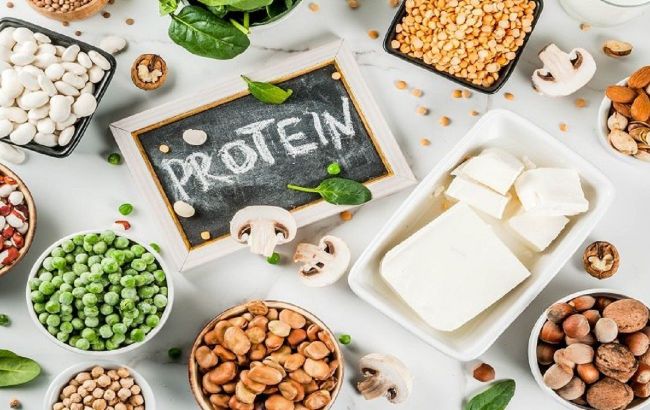Plant-based vs animal protein: What to eat for weight loss
 Photo: How to lose weight by consuming plant-based protein (shutterstock.com)
Photo: How to lose weight by consuming plant-based protein (shutterstock.com)
The digestibility of protein is one of the most common topics in the world of healthy eating. It's often said that animal protein is much better than plant-based protein. Is this true? Yes, but the difference is not as significant as it may seem.
Ukrainian trainer and nutritionist Viktor Mandziak discusses whether it is possible to lose weight while consuming plant-based protein.
Animal vs. plant protein: What science says
Animal protein is absorbed by the body at more than 95%, while plant-based protein is absorbed at an average of 80-90%. There is a difference, but it's not critical enough to consider plant protein unsuitable.
The "incompleteness" of plant-based protein refers to the lack or insufficient amount of certain essential amino acids - those that the body cannot synthesize and must obtain from food.
There are eight such amino acids: leucine, isoleucine, valine, tryptophan, phenylalanine, threonine, lysine, and methionine. Plant-based proteins sometimes have a limited amount of certain amino acids, for example, lysine in white bread or methionine in oats.
How to solve the problem
The solution is varied nutrition. Combining different sources of plant-based protein ensures the body gets all the necessary amino acids. For example, a lack of lysine in bread can be compensated by peas, and the deficiency of methionine in grains can be balanced with rice.
Why protein consumption is important
Protein is the building material for the body. All hormones, enzymes, muscles, and even your DNA are created thanks to proteins. However, you should avoid extremes. A balanced diet, including both plant and animal protein sources, is the optimal path to health.
Therefore, there is no need to dismiss plant-based protein as "incomplete." It can fully provide your body with everything it needs if you eat a varied diet. So don't limit yourself to just meat or only vegetables - maintain a balance, and everything will be fine.
This material is for informational purposes only and should not be used for medical diagnosis or self-treatment. Our goal is to provide readers with accurate information about symptoms, causes, and methods of detecting diseases. RBС-Ukraine is not responsible for any diagnoses that readers may make based on materials from the resource. We do not recommend self-treatment and advise consulting a doctor in case of any health concerns.

